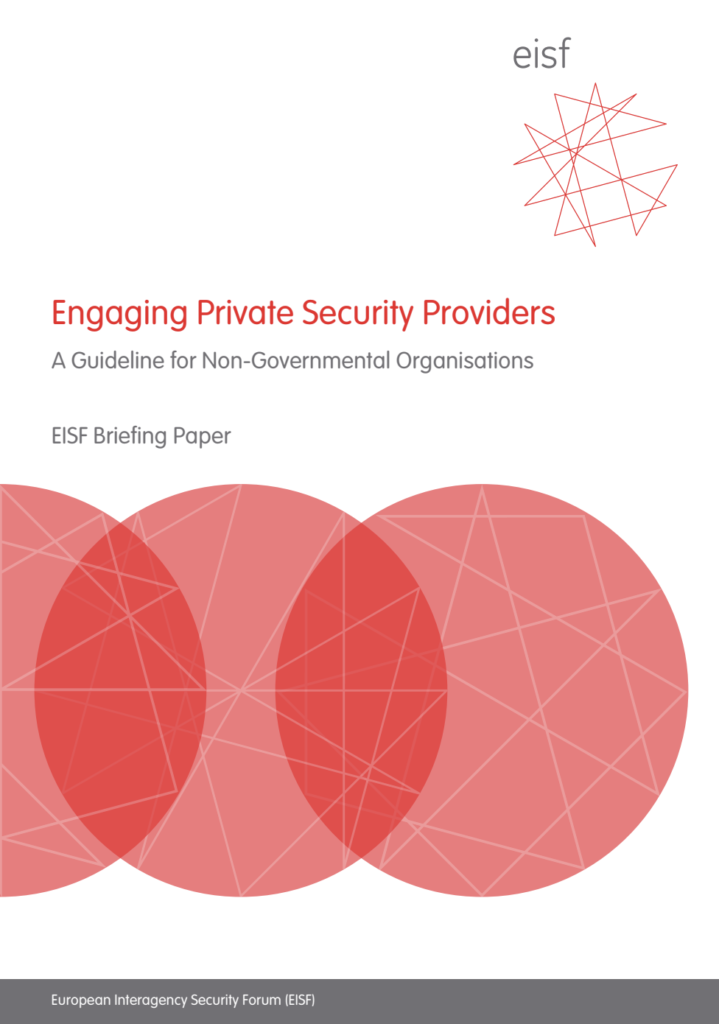Over the past decade humanitarian agencies have increasingly made use of Private Security Providers (PSPs) to support their security requirements. This briefing paper provides guidelines that offer an approach for assessing the viability of involvement of PSPs by NGOs. The paper covers ‘soft services’ such as training and crisis management support, as well as ‘hard services’ such as (armed) guarding and bomb tracing and destruction. The guidelines are intended to be used by humanitarian NGOs at management level and by those that are involved in the provision of security at headquarters, country and field level.
Update:
Engaging Private Security Providers: A Guideline for Non-Governmental Organisations was first published in December 2011. An update to the briefing paper was published in June 2015. While this is not an exhaustive update, this document intends to reflect the most important developments in the sector since the document was published, as well as correct some mistakes. GISF would like to thank Anne James, Quality, Standards and Accreditations Manager from Salamanca Group, for her help with the corrections.
